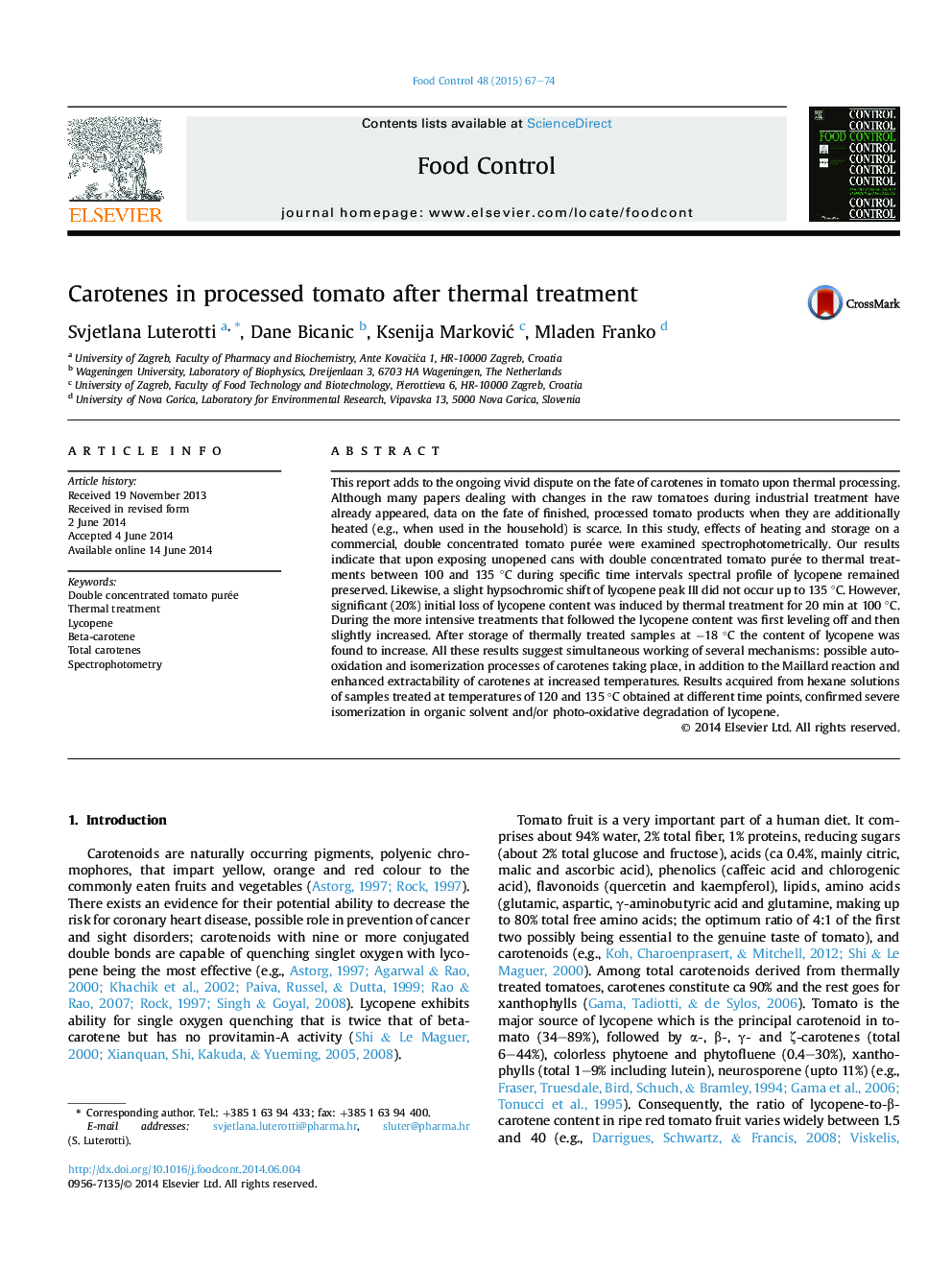| Article ID | Journal | Published Year | Pages | File Type |
|---|---|---|---|---|
| 6391556 | Food Control | 2015 | 8 Pages |
Abstract
This report adds to the ongoing vivid dispute on the fate of carotenes in tomato upon thermal processing. Although many papers dealing with changes in the raw tomatoes during industrial treatment have already appeared, data on the fate of finished, processed tomato products when they are additionally heated (e.g., when used in the household) is scarce. In this study, effects of heating and storage on a commercial, double concentrated tomato purée were examined spectrophotometrically. Our results indicate that upon exposing unopened cans with double concentrated tomato purée to thermal treatments between 100 and 135 °C during specific time intervals spectral profile of lycopene remained preserved. Likewise, a slight hypsochromic shift of lycopene peak III did not occur up to 135 °C. However, significant (20%) initial loss of lycopene content was induced by thermal treatment for 20 min at 100 °C. During the more intensive treatments that followed the lycopene content was first leveling off and then slightly increased. After storage of thermally treated samples at â18 °C the content of lycopene was found to increase. All these results suggest simultaneous working of several mechanisms: possible auto-oxidation and isomerization processes of carotenes taking place, in addition to the Maillard reaction and enhanced extractability of carotenes at increased temperatures. Results acquired from hexane solutions of samples treated at temperatures of 120 and 135 °C obtained at different time points, confirmed severe isomerization in organic solvent and/or photo-oxidative degradation of lycopene.
Related Topics
Life Sciences
Agricultural and Biological Sciences
Food Science
Authors
Svjetlana Luterotti, Dane Bicanic, Ksenija MarkoviÄ, Mladen Franko,
